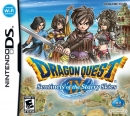
It's the morning after Satya Nadella's first day as Microsoft's CEO. Now that the confetti has cleared, Nadella faces tough choices about the path forward for the company.
Two influential Microsoft shareholders have been pushing the Redmond software giant to abandon what they view as non-essential product lines so that Microsoft can focus on its core strength: selling enterprise software to businesses. Nadella has spent the last seven months running Microsoft's $20 billion server and tools division, so he could be ideally suited to manage that transition.
But doing so would mean repudiating much of the legacy of his predecessors, Bill Gates and Steve Ballmer, who have long believed that Microsoft needs to win over consumers, not just corporate IT managers. As a 22-year Microsoft insider, Nadella owes much of his career to Gates and Ballmer.
Nadella's tenure at Microsoft's helm will be largely defined by how he balances the competing visions of Microsoft's future and the strong personalities who will be pushing those visions in Microsoft's boardroom. Having activist shareholders who are urging Microsoft to rethink its vision could give Nadella an opening to face down his predecessors, if he wants to do so. But it wouldn't be easy.
The business of Microsoft is business?
Ballmer envisioned Microsoft as a "device and services" company and reorganized the company last year to better execute that vision. But now Ballmer is out — though still on the board — and with a new CEO come fresh questions about the fate of consumer tech at Microsoft.
Microsoft's Windows division has been facing shrinking profits; last year, the unit pulled in a net $9.5 billion, down from $11.6 billion in 2012 and $12.3 billion in 2011. Company filings suggest that the drop is largely attributable to declining demand for Windows among consumers, even as sales of Windows to businesses remain strong. The same division also reported a $900 million loss on unsold Surface tablets. The online services division, which oversees search engine Bing, reported a loss of $1.3 billion in 2013 — less than the previous year but still in the red.
Some investors have suggested that Microsoft spin off its money-losing consumer products and focus solely on the enterprise. Even the Xbox deserves to go, Paul Ghaffari, the wealth manager for Microsoft co-founder Paul Allen, said last year.
But Robert Bontempo, a management professor at Columbia Business School, is skeptical that Nadella will be able to chart his own course on the matter. "You're asking for Nadella to walk into a board meeting and look Ballmer and Gates in the eye and say, 'The decisions you've made over the past two decades are a mistake,'" said Bontempo. "That's going to take some serious strength of character."
"There's going to be a lot of tension"
If Nadella does choose to turn more decisively toward business customers, he may find a useful ally in a man named Mason Morfit. Morfit is a 37-year-old activist investor whose employer, the private hedge fund ValueAct, acquired a 0.8 percent stake in Microsoft in August. That was enough to put Morfit on the board.
Morfit was reportedly among those who urged Ballmer to step down. Microsoft denied that ValueAct played any role in the decision, but the way events played out nevertheless reflected on ValueAct's power as a shareholder voice.
More important, ValueAct has been a critic of Microsoft's strategy and — like Ghaffari — wants the company to consider shedding some of its investments in consumer technology. ValueAct also reportedly wants the company to unbundle its offerings, such as Microsoft Office, so that they can be used on other platforms besides Windows.
"Microsoft has historically had a supportive board," said Bontempo. But with the addition of Morfit, Bontempo said, "this is going to be an extremely toxic environment ... There's going to be a lot of tension."
That tension could come in handy for Nadella, who will need political cover to pursue broader changes at the company.
But there are some early signs that Nadella is interested in continuity with his predecessors rather than a radically new strategy. The Indian-born engineer asked — and got — Gates to step away as chairman of the board so that Gates could advise him on products and devices. Whatever Gates's qualifications for this job, it's clear Nadella recognizes his own weaknesses when it comes to consumers. It's also suggestive of Nadella's faith in the "device" part of Microsoft's "device and services" mantra.
Though no longer chairman, Gates will remain on the board of directors. Analysts say the programmer-turned-philanthropist has exerted a strong influence at Microsoft behind the scenes, even as he's kept a low public profile at the company.
How an enterprise-focused Microsoft can keep in touch
Nadella only hinted at wider changes in a company e-mail Tuesday. "Our industry does not respect tradition," he wrote. "It only respects innovation."
But just because Microsoft could stop producing gadgets doesn't mean it needs to disengage from the public altogether. According to one recent former employee, the company has a wealth of potentially inspiring research that would benefit Microsoft's public image but that's never publicized because the corporate structure discourages such results from trickling out. Many of these projects resemble the kind of work that rivals such as Google routinely turn into conversational hits, if not commercial ones, the former employee said. Unlike Google, however, the focus on selling products at Microsoft detracts from any attempt to publicize an interesting piece of experimental work.
"Marketing at Microsoft is mostly about sales," the former employee said. "And sales is largely about products. So if your product doesn't sell, it doesn't make it into marketing."
It hardly helps that Microsoft has very specific ideas about what a product is, the employee added, and that an innovation may never see the light of day if it doesn't fit into one of the company's existing offerings.
When asked how Microsoft's research priorities might change under Nadella's tenure, a company spokesperson declined to comment.
If the $10.4 billion Microsoft spends on research and development is as fantastic as the former employee says, Microsoft would have a prime opportunity to do what others in this space have also done: Build a consumer-facing brand that highlights Microsoft's technologies in virtually everything from ATMs to gas station terminals or that shows how Microsoft services are behind the next wave of other people's technological innovation. IBM's Smarter Cities Challenge is one example of a services company that stays in the public eye this way. So is General Electric's Ecoimagination project. If they can do it, why not Microsoft?
Yet history suggests this could be an uphill climb for Nadella. Ballmer struggled to build new consumer-facing businesses at Microsoft for more than a decade, with little to show for it. Nadella will have to decide whether to continue with that strategy or make a painful break and focus on areas where the software giant is a proven winner.
http://www.washingtonpost.com/blogs/the-switch/wp/2014/02/05/investors-want-microsofts-new-ceo-to-kill-xbox-bing-and-surface/




























































